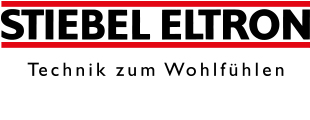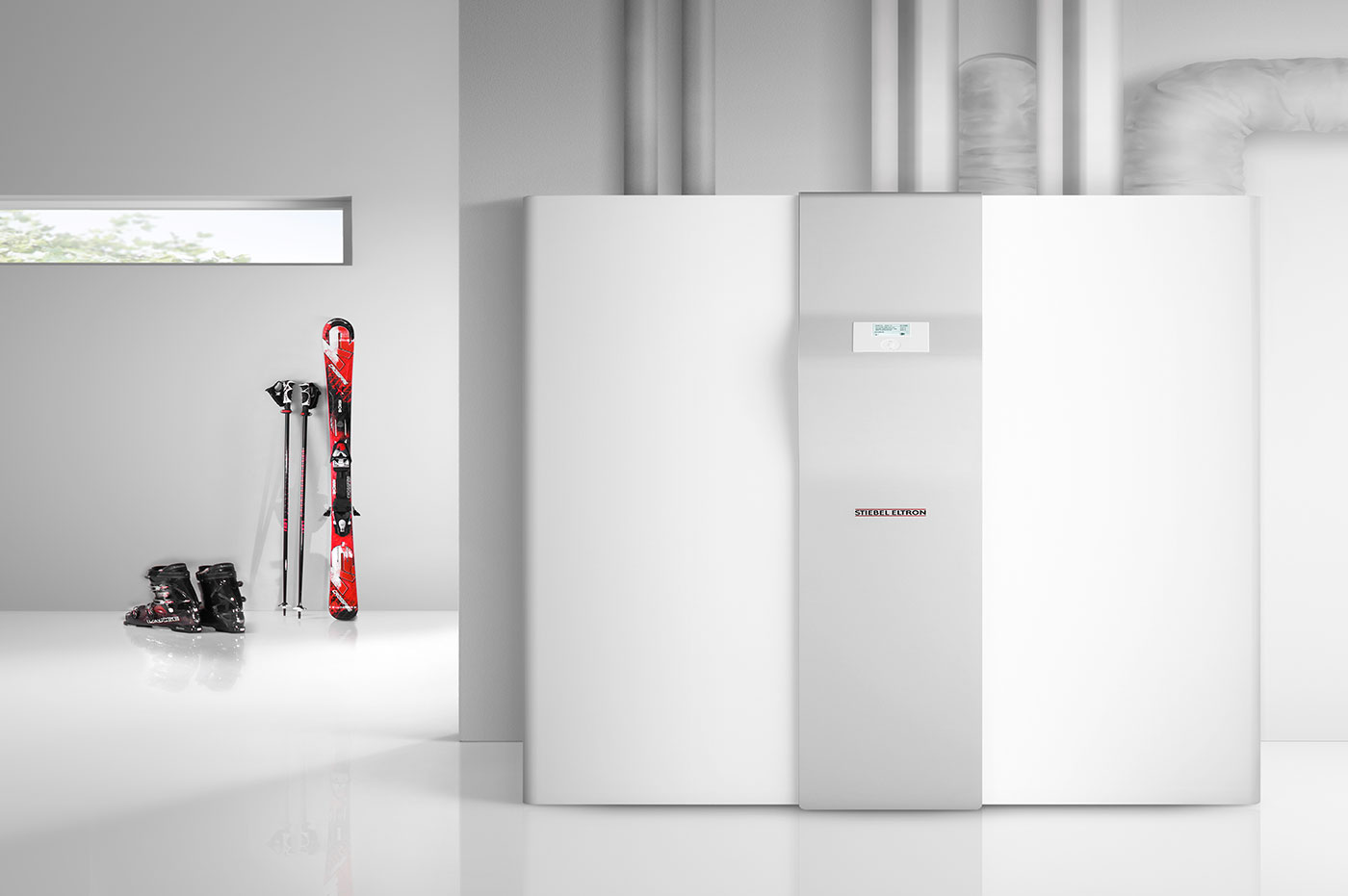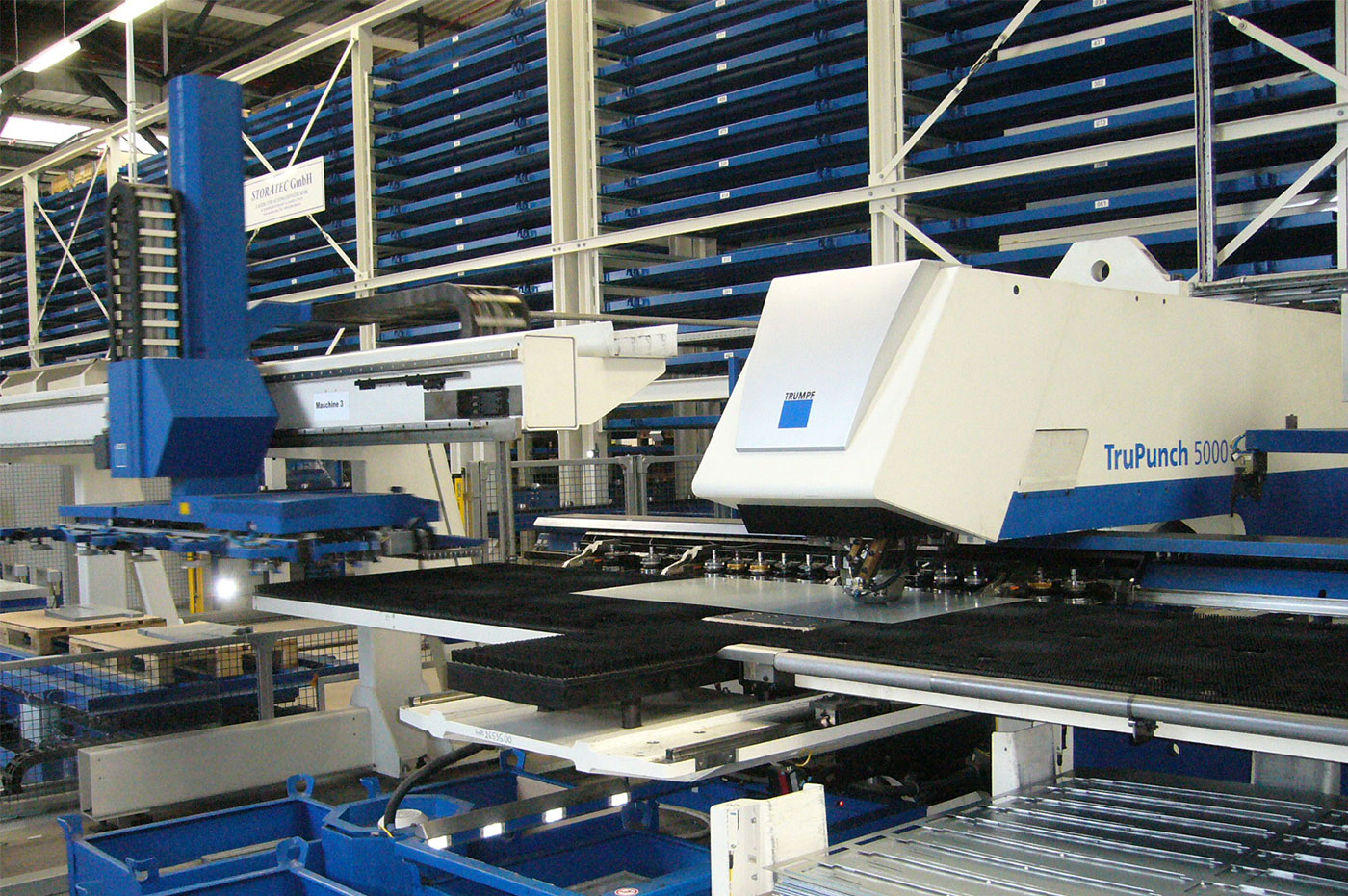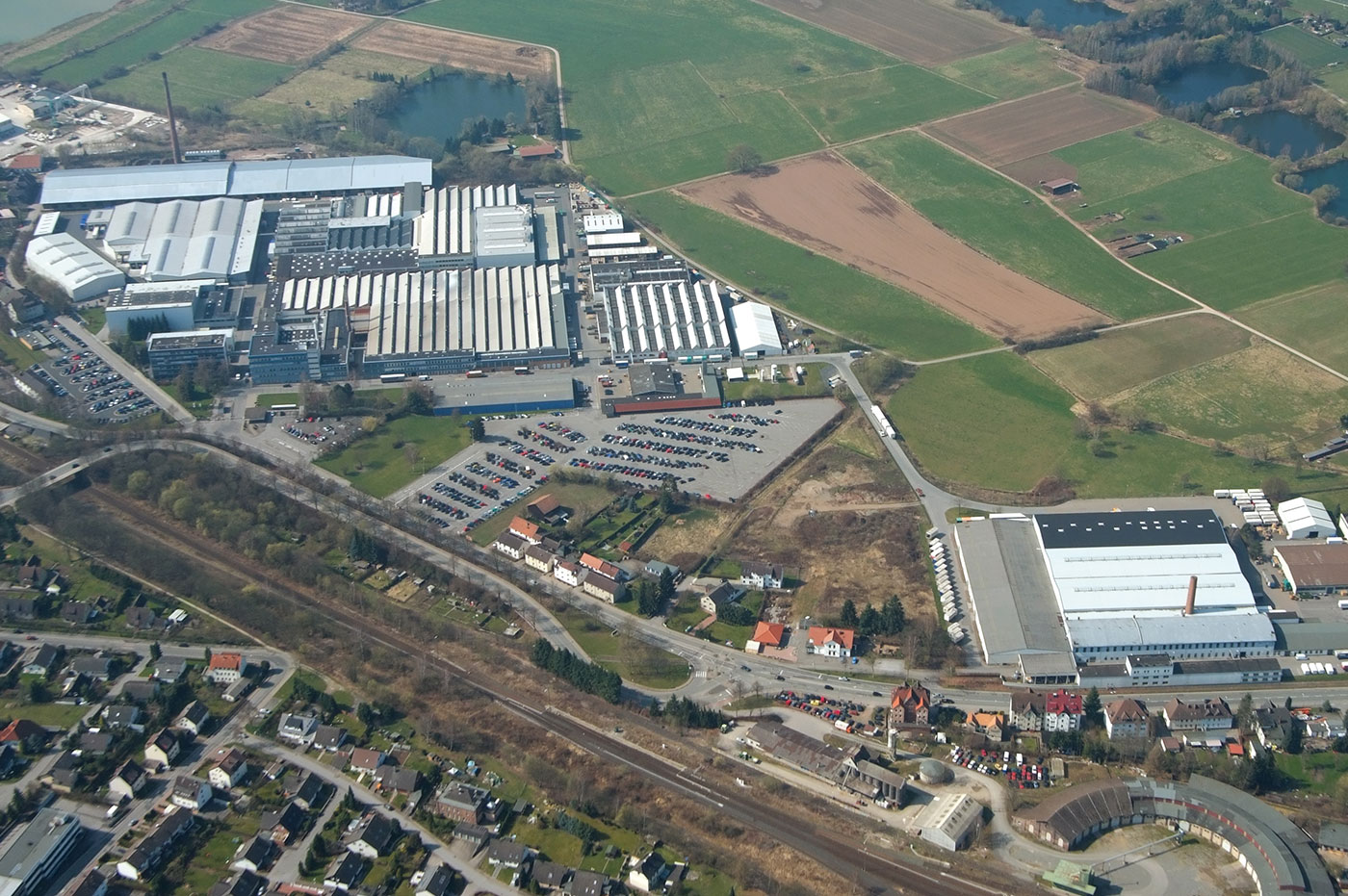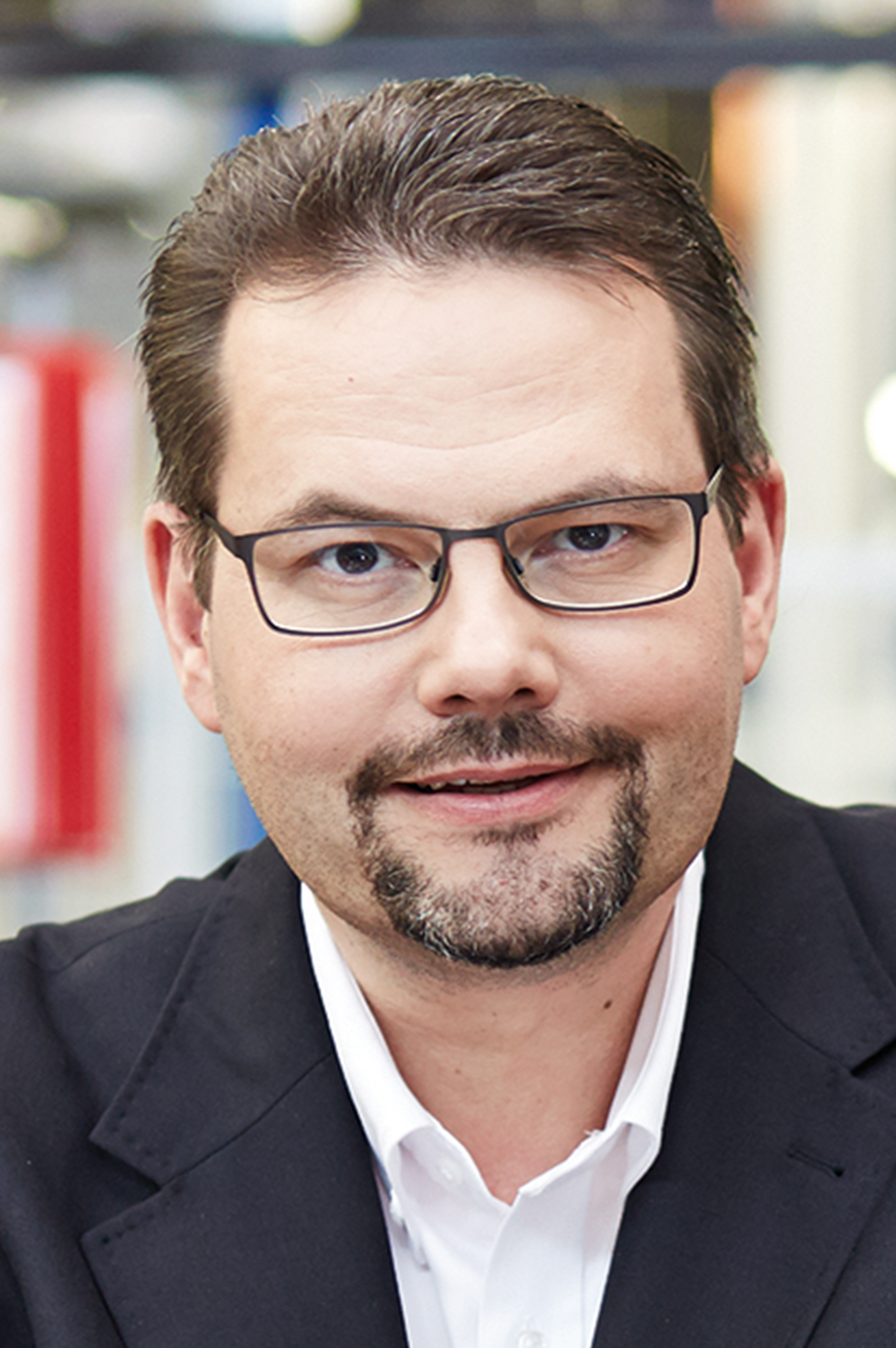Case Study Stiebel Eltron
“STIEBEL ELTRON for continuous hot water” was the advertising slogan from the late 1960s that introduced the company, founded in 1924 in Berlin by Dr. Theodor Stiebel, to a large audience and many end users. STIEBEL ELTRON traditionally specializes in wholesale and HVAC contractors. The company began with convection furnaces, ironing machines and modern electric heaters (including night storage heating). Headquartered in Holzminden (Germany), today STIEBEL ELTRON is an international corporate group and stands among the world market and technology leaders in HVAC and renewable energy.
Best optimization results thanks to cronetwork
Time savings & cost reduction
Optimization of all workflows
Improved delivery & capacity planning
Transparent production processes
Meaningful index values
Reduction of machine down time
MES by Industrie Informatik in sheet metal production
Since the company’s founding, technical performance, quality, innovation, reliability and customer-oriented service have been the success factors. With five national and international production locations, 15 subsidiaries worldwide, and sales organizations and representatives in over 120 nations, the company is positioned well globally. It is no wonder that 40 percent of sales are export.
With 3000 employees worldwide (2000 in Germany), in 2010 the STIEBEL ELTRON Group achieved total sales of nearly 450 million euro. The company is well prepared for the future not only with a challenging research, development and investment program but also with the innovative MES solution (manufacturing execution system) cronetwork for their internal sheet metal processing, one of their core preproduction areas. After a stringent selection process, early 2010 the company decided to purchase the MES from Industrie Informatik, Linz.
Dipl.-Ing. (FH) Ulrich Babenschneider, head of sheet metal processing at STIEBEL ELTRON, explains the company’s decision for cronetwork: “If you consider the functionality, the options of the software and the philosophy and technology behind it, then I find that Industrie Informatik is far ahead of the competition.” Here the excellent SAP® integration of the web-based MES solution as well as the freely parameterizable terminals that anyone can operate serve as strong arguments. “I also liked the user friendliness of Industrie Informatik. You can configure everything as you need it,” says Babenschneider. This is not possible with other systems. STIEBEL ELTRON employs the cronetwork modules PDC (plant data collection), MDC (machine data collection), scheduling board, work center monitor, KPI (key performance indicators), production info and dashboard (indicator cockpit).
The challenge for MES
As a core preproduction area, STIEBEL ELTRON sheet metal processing supplies all assembly points with sheet metal components. Products include heat pumps, ventilation devices, thermal storage, instantaneous water heaters, and upright tanks and hot water storage tanks. Babenschneider explains the future tasks of MES in production planning: “We produce some 2000 articles with some 700 possible job steps with various production technologies. The numbers alone show the complexity of our processing unit.”
Another challenge for MES is that the individual products have different seasonal curves. This makes it clear that preproduction has particular importance for STIEBEL ELTRON in terms of on-time delivery and availability. It is of great importance to deliver punctually to internal customers.
The introduction of cronetwork promised improved capacity planning and human resource management. In addition to fully automatic systems, the company also has presses with one operator per machine. When the utilization of the machines demands it, e.g., at peak season, these machines must be operated by temporary workers or qualified personnel in-house. This means that human resource planning must know in time when additional personnel are required. These reasons were the primary motivators for the purchse of a reliable planning system in the sense of detailed planning and control panel.
Buzzword and challenge: Trumpf punch-nibble machines
The Trumpf punch-nibble machines were a particular challenge for machine data collection. These machines process sheet metal and punch out various parts. Different parts and thus different orders are cut from one sheet so as to minimize material consumption (and waste). The machine informs cronetwork of the different jobs on a metal sheet as well as the piece factor per sheet (i.e., the number of parts per sheet per order). Fully automatically this stack of orders is logged in and out including logging of the correct production time and quantity. This is necessary because, due to the coupling of job planning in cronetwork with the warehouse software, the machines can run unattended for hours; and also because the different feedbacks for different jobs per sheet would mean too much manual feedback effort.
cronetwork introduction and operation
The implementation and the transfer of legacy data from the other systems presented no problems. Before implementation of each module, one- to two-day workshops were held with consultants of Industrie Informatik; here the requirements and the functionality were discussed.
“In addition to me, there were a hardware specialist, two production control people and four shift foremen in the project team,” reports Ulrich Babenschneider. The idea was that the shift foremen as representatives of the rank and file should be involved in the project and the system from the start in order to identify with it and to transmit their acceptance to the personnel. After less than a year the MES software was running in its full scope including all evaluations and indicators. Production manager Babenschneider describes his implementation partner Industrie Informatik: “We were, and are, very satisfied with the introduction competence of our service provider. There were no surprises in the project. All verbal agreements and promises were kept.”
Currently 90 employees are using the MES solution in PDC and MDC, and the rollout in other areas is planned, for collecting production data, for disruption and scrap analysis, and for machine availability. The work center monitor in offices of shift foremen reflects the current shop situation, the module production info supplies extensive evaluations. The use of KPIs and the dashboards is planned for the first half of 2012.
In daily operation, Babenschneider above all likes the flexibility of the MES solution and the provision of accurate, transparent production data on the basis of actual data: “With cronetwork we have a meaningful indicator system that enables target/actual comparisons, reworking, overhead controlling, disruption and scrap analysis, machine availability, and production control panel and scheduling board.” In addition they have a reliable order scheduling system on the basis or actual capacities and current machine availability.
One goal: service and maintenance of machines with cronetwork
For den production-sensitive area of disruptions in an interlinked production line, STIEBEL ELTRON stored over 120 disruption reasons that operators can enter simply via barcode. Whether mechanical or electrical failure or failure of individual sensors, STIEBEL ELTRON maintains highly detailed evaluations. This enables them to precisely determine the availability of individual production line components. The functionality of cronetwork enables a detailed view of where disruptions occur, where maintenance makes faster progress, what to keep in mind, or where complete production line components must be re-engineered.
Babenschneider explains, “Our goal is to use cronetwork to manage the complete service and maintenance of our complete machine inventory. In the sense of total productive management (TPM), constructive changes are possible anytime.” Particularly with regard to group work and a continuous improvement process (CIP) and preventative maintenance as the building blocks of group work, methods such as TPM help to identify inefficiencies, which can be corrected with the help of cronetwork. The groups benefit directly, for this is directly coupled to the STIEBEL ELTRON suggestion system, where suggested improvements can be submitted, and resulting savings are recognized via a bonus paid to the employee.
Conclusion and outlook
The MES solution has brought STIEBEL ELTRON’s sheet metal processing increased production along with cost reductions and time savings. Babenschneider knows why: “Since the introduction of cronetwork we have achieved optimization of all job flows. The keys here are disruption analysis and target/actual comparisons. In addition, we have a significant reduction of machine down time, reduced throughput times, and significantly better deadline and capacity planning.” Missing parts, schedule delays and problems in capacity scheduling are things of the past.
“Regarding the complete MES project,” says Babenschneider in conclusion, “I want to describe the collaboration with Industrie Informatik and the consultants responsible for our project as highly professional and goal-oriented.” Based on this consistently positive assessment, company management has decided to extend the MES cronetwork to other areas.
photos: © STIEBEL ELTRON, Industrie Informatik GmbH
Products:
domestic water heating and heating; systems and plants for utilization of renewables
Staff:
3000
cronetwork modules:
scheduling board, plant data collection, machine data collection, work center monitor, OPC, key performance indicators, PIDO, BI
“Since the introduction of cronetwork we have achieved optimization of all job flows. The keys here are disruption analysis and target/actual comparisons. In addition, we have a significant reduction of machine down time, reduced throughput times, and significantly better deadline and capacity planning.”
